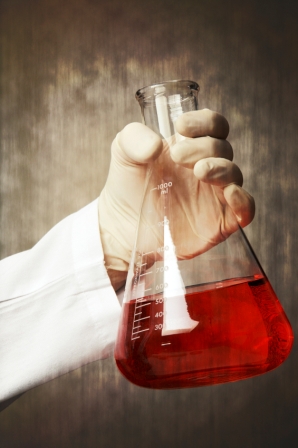FOR IMMEDATE RELEASE: May 1, 2013
Washington State Program Gives Lawmakers and Consumers Critical Information to Protect Kids, Similar Disclosure Programs Needed in Vermont and Other States
Seattle, WA – Over 5,000 children’s products contain toxic chemicals linked to cancer, hormone disruption, and reproductive problems according to reports filed with the Washington State Department of Ecology (Ecology). An analysis of the reports by the Washington Toxics Coalition and Safer States found that makers of kids’ products reported using a total of 41 chemicals identified by Ecology as a concern for children’s health, including toxic metals such as cadmium, mercury, and antimony, and organic compounds such as phthalates. Major manufacturers who reported using the chemicals in their products include Walmart, Gap, Gymboree, Hallmark, and H & M.
Examples of product categories reported to contain toxic chemicals include:
- Hallmark party hats containing cancer-causing arsenic.
- Graco car seats containing the toxic flame retardant TBBPA (tetrabromobisphenol A)
- Claire’s cosmetics containing cancer-causing formaldehyde.
- Walmart dolls containing hormone-disrupting bisphenol A.
“The data shows store shelves remain full of toxic chemicals that we know are a concern for children’s health,” said Erika Schreder, science director for the Washington Toxics Coalition. “These reports are critical for understanding the presence of toxic chemicals. Yet to truly protect children, manufacturers need to identify safer ways to make their products and stop using harmful chemicals.”
“It’s time for companies selling in Vermont to come clean and reveal the use of harmful chemicals in our products too,” said Lauren Hierl, environmental health advocate at VPIRG. “Vermont consumers deserve to know what harmful chemicals are lurking in our homes. We urge the legislature to protect kids by passing legislation to require disclosure of chemicals used in kids’ products, and to require companies to stop using the most harmful chemicals.”
The chemical reports are required under Washington State’s Children’s Safe Products Act of 2008, which requires major companies making children’s products to report the presence of toxic chemicals in their products. The reports cover certain children’s products sold in Washington State from June 1, 2012 to March 1, 2013.
Major findings from the reports include:
- More than 5,000 products have been reported to date as containing a chemical on Washington State’s list of 66 Chemicals of High Concern to Children.
- Products reported so far include children’s clothing and footwear, personal care products, baby products, toys, car seats, and arts and craft supplies.
- Toxic metals such as mercury, cadmium, cobalt, antimony, and molybdenum were reported, with cobalt being the metal most often reported.
- Manufacturers reported using phthalates in clothing, toys, bedding, and baby products.
- Other chemicals reported include solvents like ethylene glycol and methyl ethyl ketone, and a compound used in silicone known as octamethylcyclotetrasiloxane.
“The Washington experience shows these reporting programs can work without being too burdensome on business,” said Sarah Doll, Director of Safer States. “At least seven additional states are considering implementing similar programs on the extent of chemical use in children’s products in their state. Critical in these proposals are requirements that companies begin looking at safer ways to make their products and an eventual phase-out of the use of harmful chemicals.”
A full analysis of Washington State’s chemical use reports are available at http://www.watoxics.org/chemicalsrevealed
A searchable database of chemical use reports filed with the Washington State Department of Ecology is available at http://www.ecy.wa.gov/programs/swfa/cspa/search.html.
###
The Washington Toxics Coalition is nonprofit organization that works to protect public health and the environment from toxic chemicals in Washington state. www.watoxics.org
Safer States (The State Alliance for Federal Reform (SAFER) of Chemical Policy) is a coalition of state-based organizations championing solutions to protect public health and communities from toxic chemicals. www.saferstates.org
Vermont Public Interest Research Group is the state’s largest nonprofit, nonpartisan consumer and environmental advocacy organization. vpirg.tempurl.host

